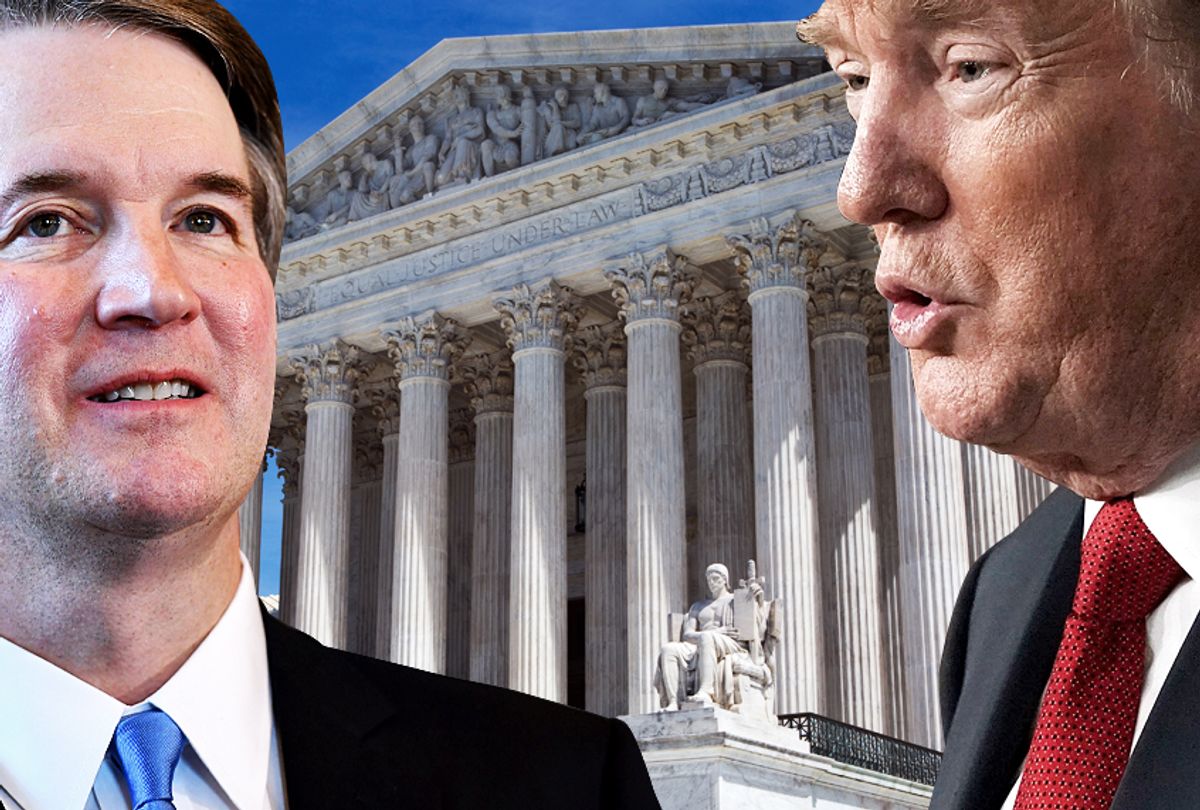A new poll reveals that Democratic projections about an impending Blue Wave may be tempered by the ongoing confirmation battle over President Donald Trump's second Supreme Court nominee, Brett Kavanaugh.
Forty-nine percent of American voters back the Democratic candidates in their local races for House of Representatives compared to 42 percent who support the Republican candidate, according to a Quinnipiac University National Poll released on Tuesday. By contrast, Democrats had a 52 percent to 38 percent lead over Republicans in the same poll when it was taken on September 12. This means that the margin between Democrats and Republicans dropped by half, from a 14 point difference to a 7 point difference, over a period of less than three weeks.
When it comes to the demographic breakdown, the Quinnipiac poll didn't contain any surprised. White voters prefer Republican candidates by 52 percent to 42 percent, while black voters prefer Democratic candidates by 82 percent to 10 percent and Hispanic voters prefer Democratic candidates by 63 percent to 28 percent. Overall 50 percent of American voters say that they want Democrats to retake the Senate, with only 43 percent feeling otherwise. Similarly, 53 percent of American voters disapprove of how Trump has handled his presidency, with only 41 percent approving of his performance — although this does constitute a slight improvement for Trump, who had a 38 percent approval rate and a 54 percent disapproval rate as of September 10.
One variable that has yet to be fully measured is the impact of the Brett Kavanaugh hearings on the midterm races. According to a Quinnipiac Poll released on Monday, 48 percent of respondents oppose Kavanaugh's confirmation, a six-point increase from the 42 percent who opposed it in September. Female voters have been especially likely to turn against Kavanaugh since last week's hearing, with 55 percent opposing his confirmation after the hearing compared to 47 percent who opposed it before the hearing. By contrast, there was only a three-point increase in male voters opposing Kavanaugh's confirmation, from 37 percent in September to 40 percent as of Monday. And a poll of the Missouri Senate race by Missouri Scout found that 46 percent of non-partisan voters were less likely to vote for Sen. Claire McCaskill (the Democratic incumbent), 39 percent said it made it more likely that they would vote for her and 15 percent said it made no difference at all — numbers that only further confuse the overall meaning of the Kavanaugh hearings.
Not everyone believes that the Kavanaugh hearings will work to the Republican Party's detriment. During an appearance on Maria Bartiromo's Fox News show on Sunday, House Majority Leader Kevin McCarthy, R-Calif., said that he had heard constituents express gratitude for Sen. Lindsey Graham, R-S.C., for denouncing the criticisms of Kavanaugh's character and accusations of sexual misconduct.
In contrast to McCarthy's optimism, however, is a recent report that many Republican Super PACs are pulling their funding away from House candidates who they perceive as being surefire losers. This indicates that, despite their professed optimism, many Republicans are bracing for the worst.



Shares